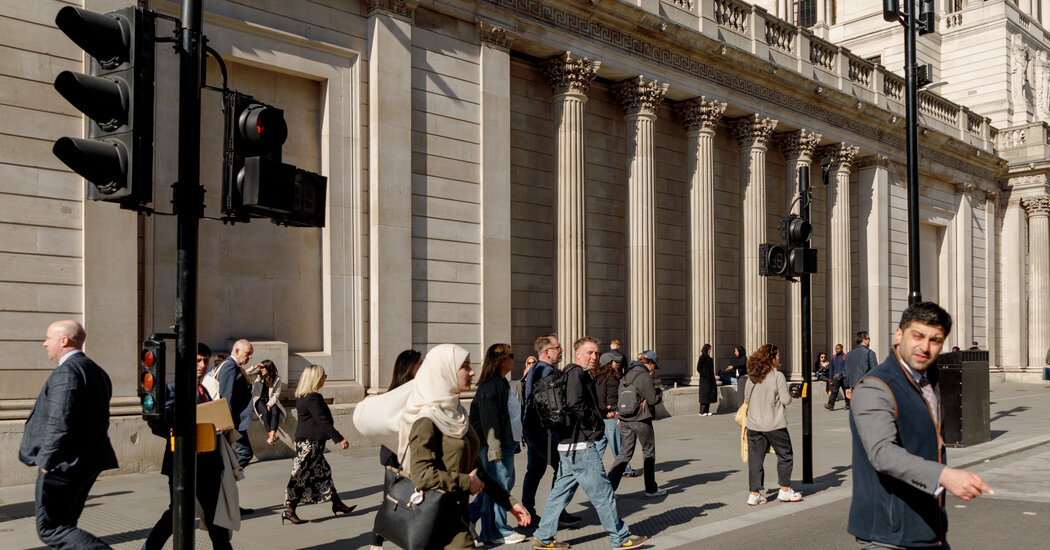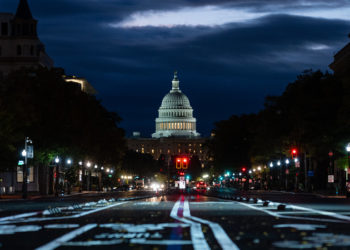For Britain’s policymakers, a moment of reckoning seems to have arrived.
This month, lawmakers, central bankers and the country’s fiscal watchdog are all confronting the challenges of an economy that is growing but is also weighed down by high inflation, high debt levels and low productivity.
This quandary will feel familiar to policymakers in other countries, including France, where debt levels are high and the government and public are not aligned on how to tackle it.
But for Britain, a history of sluggish productivity growth, unsatisfactory living standards and weak investment have come to a head. Economists are pushing policymakers to make choices, which could be deeply unpopular, that they hope will make the country’s finances more sustainable and create the foundations for faster economic growth.
“The costs of not acting now are quite high,” said Benjamin Caswell, an economist at the National Institute of Economic and Social Research.
The Labour Party
Just three weeks before she will announce her second annual budget, Rachel Reeves, the chancellor of the Exchequer, gave an unexpected speech on Tuesday in which she warned that she would be taking decisions in the “national interest,” not for political expediency.
“When I was appointed chancellor, people put their faith in me to take our country forward, not to be swayed by political convenience, not to always do what is popular, but to do what is right,” she said.
In the budget, Ms. Reeves is expected to either increase taxes or cut spending in order to find tens of billions of pounds if she is to stick to her self-imposed rules on lowering debt. But the chancellor recently presented her spending plans, so raising taxes seem to be only one way out of this bind.
Ms. Reeves did not say in her speech that taxes were going to increase, but analysts have said she appears to be preparing the waters for an unpopular decision. The Labour Party promised before it was elected into government last year that it would not raise taxes on working people. Breaking that pledge is likely to infuriate many voters and provide ammunition to her political opponents.
Economists at the National Institute of Economic and Social Research and the Resolution Foundation, another think tank, are among those recommending Ms. Reeves raise income tax.
The chancellor has sought to transform Britain’s stagnant economy without having much money to do so. She has spent more on the National Health Service and increased public sector wages, a splurge that has helped Britain’s economy grow. It is set to be the second-fastest growing economy in the Group of 7 this year, after the United States.
But the measures — paid for by raising taxes on certain groups, including businesses, farmers and wealthy foreign residents — have not been enough to supercharge growth or cover other spending needs, such as on welfare and higher borrowing costs. Ms. Reeves is expected to return to the public at the end of the month to ask them for more.
The Bank of England
On Thursday, the Bank of England made its own tough choice. Policymakers held interest rates steady at 4 percent, breaking their recent pattern of quarterly rate cuts, amid concerns over stubbornly high inflation.
Prices rose 3.8 percent in September from a year earlier, nearly double the central bank’s target. For much of this year, the nine-person rate setting committee has been deeply divided on how best to manage an economy where price pressures are uncomfortably high, but the labor market has been showing signs of weakness, with the unemployment rate creeping upward.
But caution won this week, with five members voting to hold rates. Andrew Bailey, the governor of the bank, said, “We need to wait and see that the downward path of inflation becomes more established before we can cut bank rate again.”
The Office for Budget Responsibility
Part of the reason Ms. Reeves has to find so much more money is the expectation that the Office for Budget Responsibility, which provides independent analyses of the economy, is going to lower its forecasts for Britain’s productivity growth from 1 percent a year. That would suggest the overall economy would grow more slowly as well, and Britain’s debt burden would be harder to bring down.
But to some economists, this was inevitable. The watchdog’s forecasts for potential growth in the medium term have stood out for their optimism. By bringing them more in line with other forecasts, the economists at the Office for Budget Responsibility, who influence fiscal policy, would be accepting that the future might look less rosy.
But it is not a given how far Britain’s policymakers will go to push past the economic challenges the country faces. Ms. Reeves could avoid raising income or other large taxes and try again for a more targeted approach focused, for example, on inheritance taxes or capital gains taxes.
But that could backfire and risk the government’s credibility in the eyes of financial markets.
“U.K. public finances are not on a sustainable footing, and there needs to be some credible fiscal consolidation,” Mr. Caswell said. “Five years on from the pandemic, now is the time to start thinking about bringing that debt ratio down.”
Eshe Nelson is a Times reporter based in London, covering economics and business news.
The post Britain Faces Up to Tough Economic Choices. Finally, Economists Say. appeared first on New York Times.



